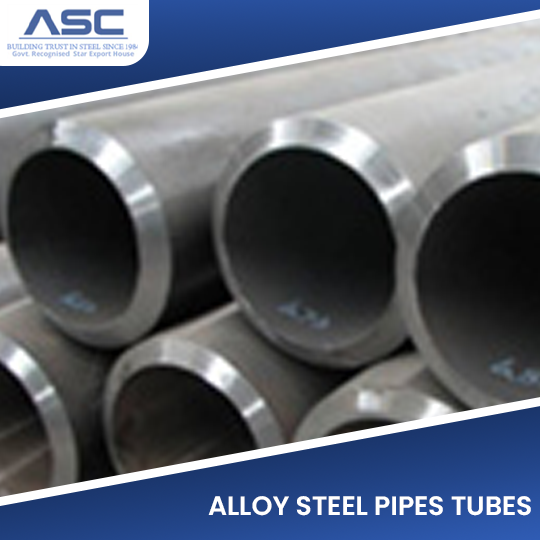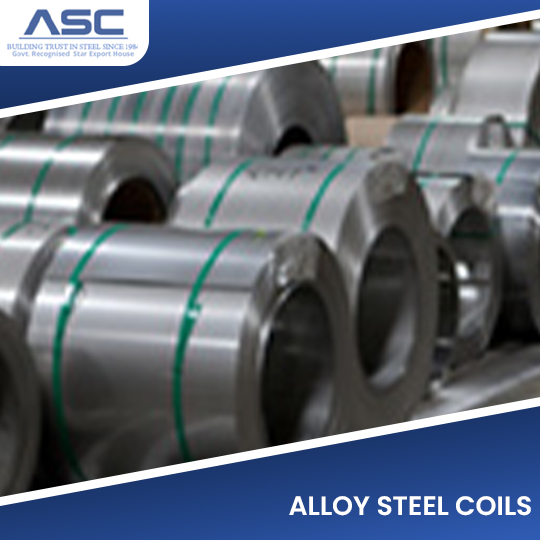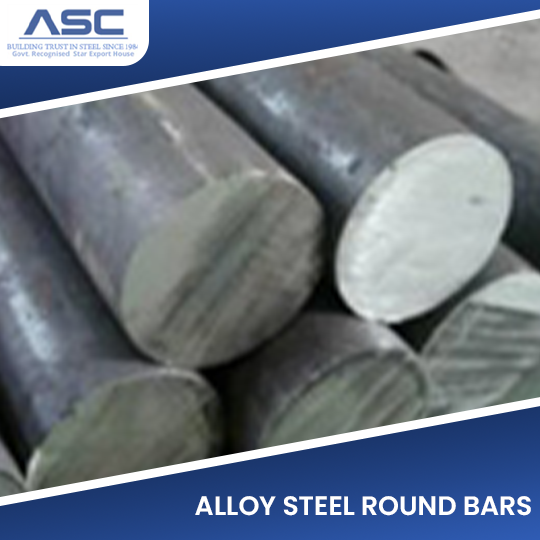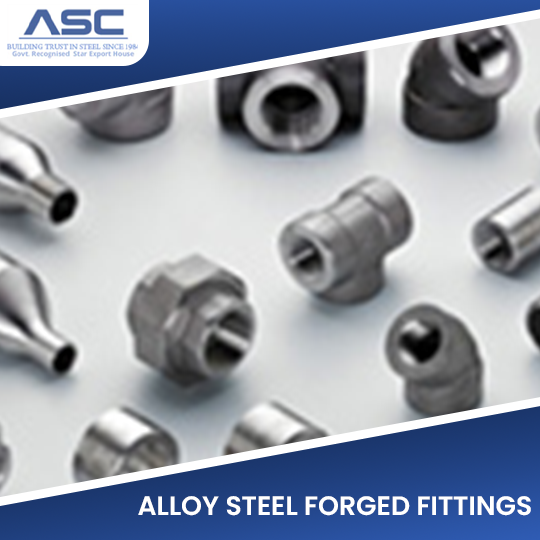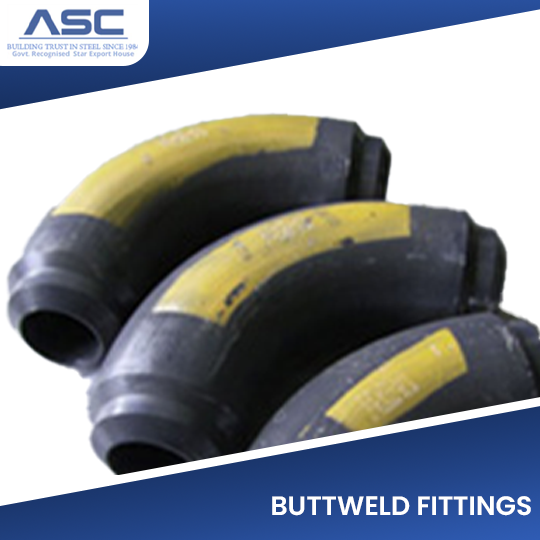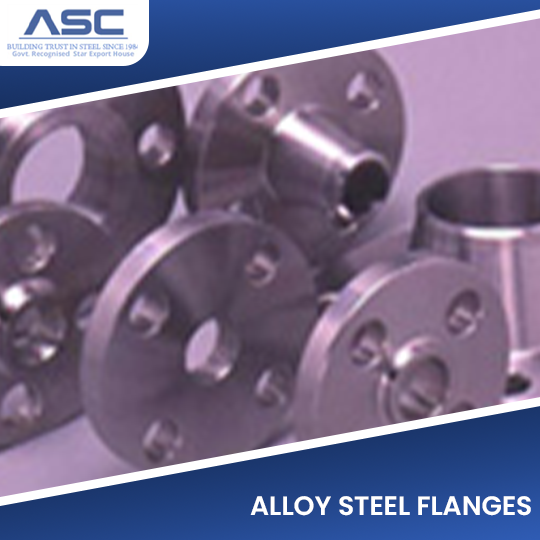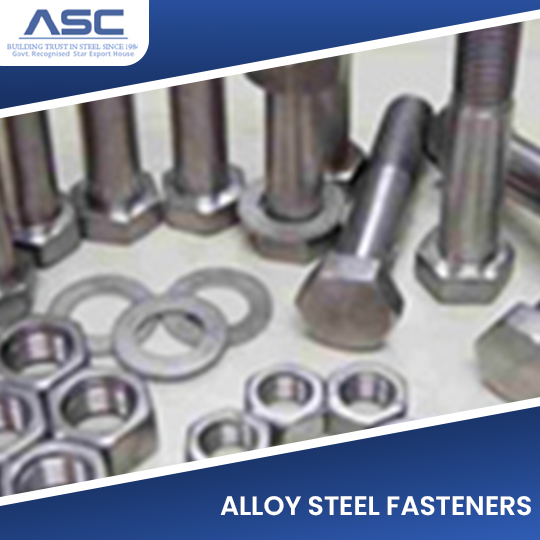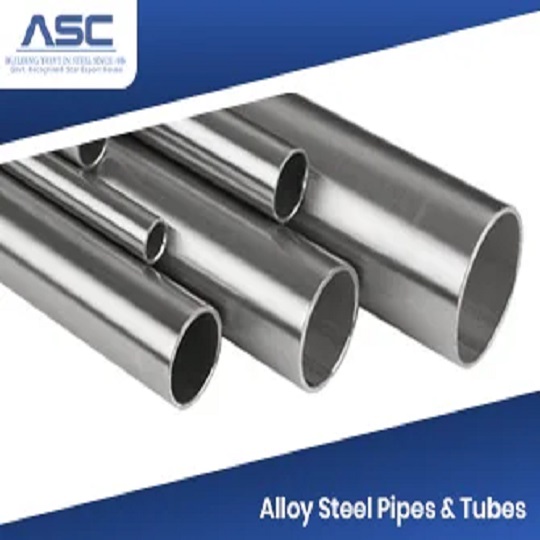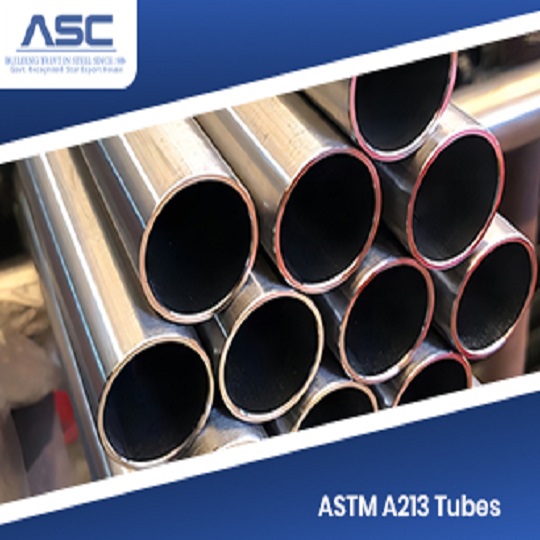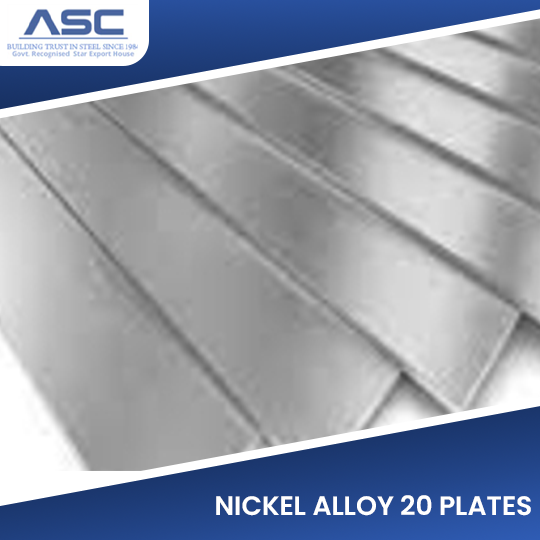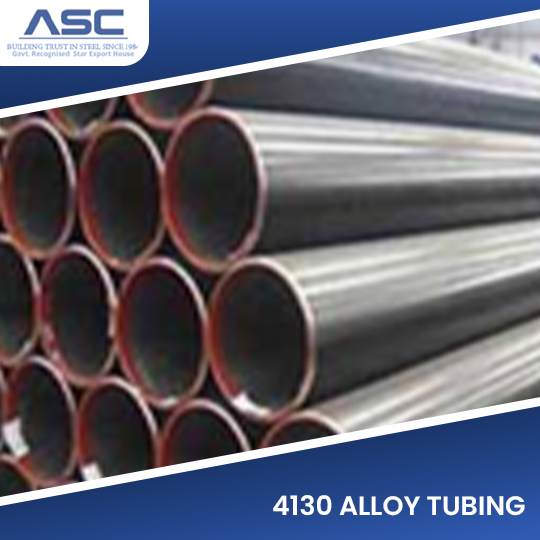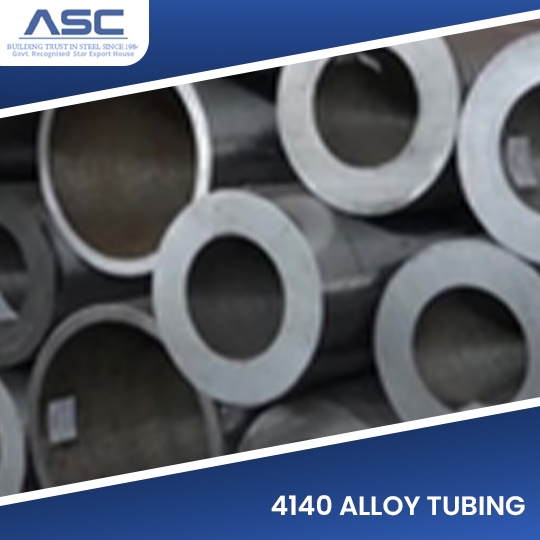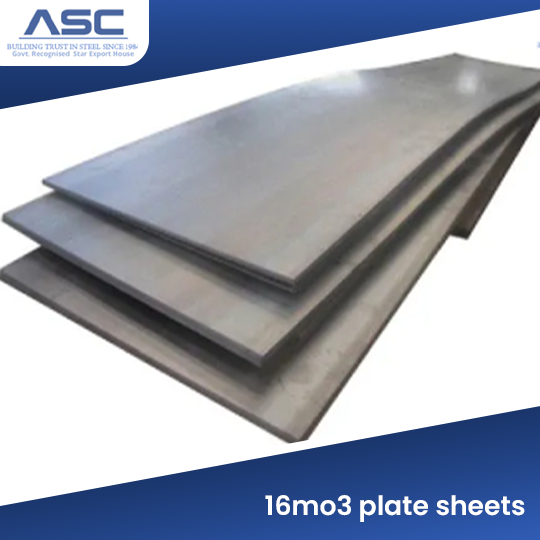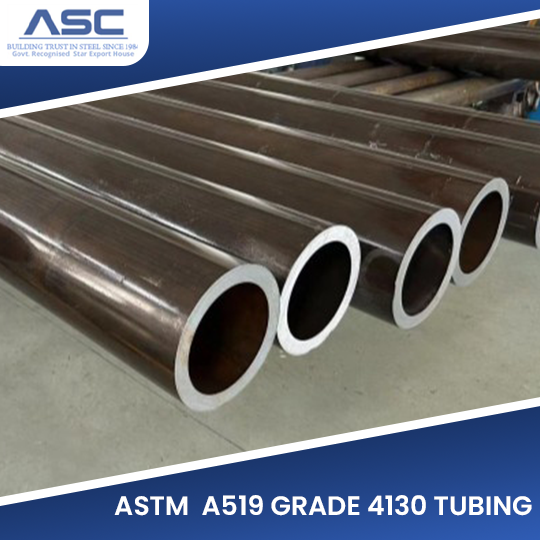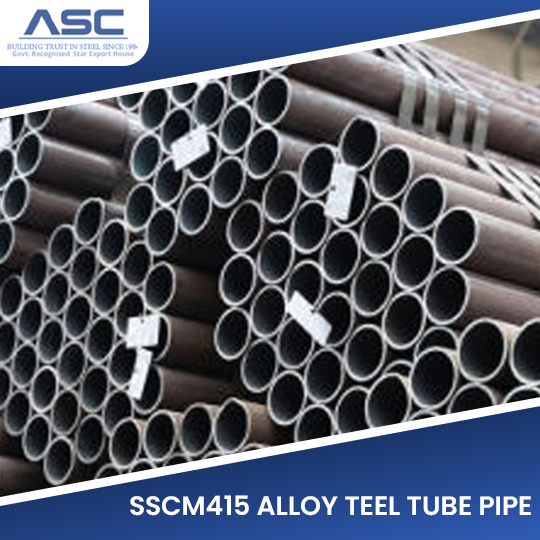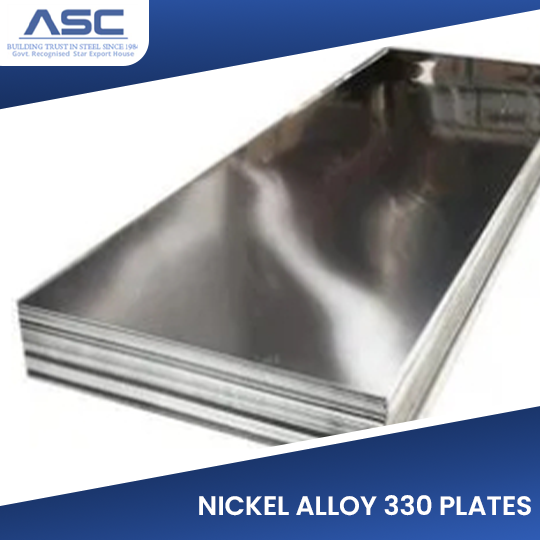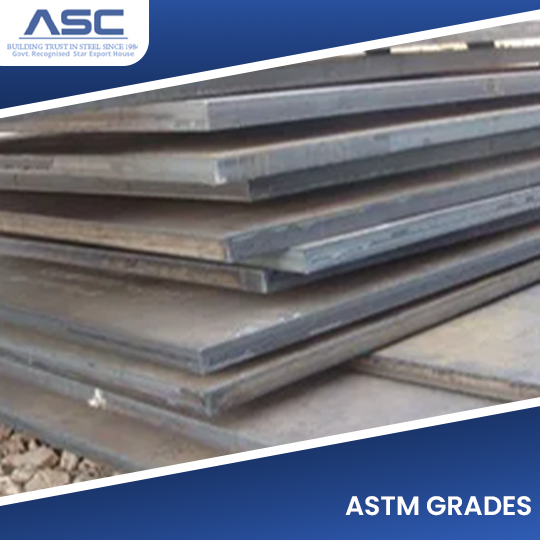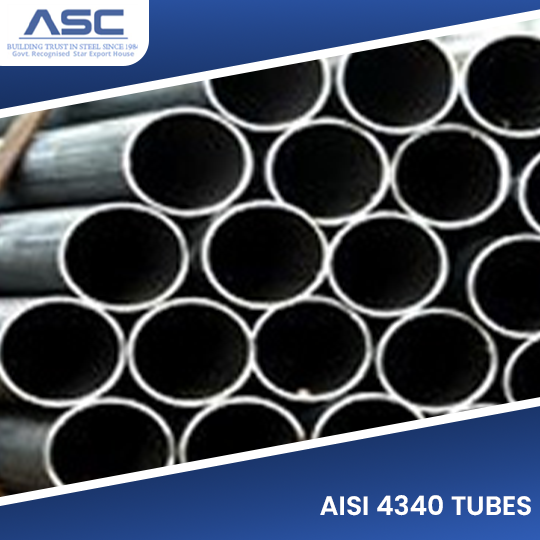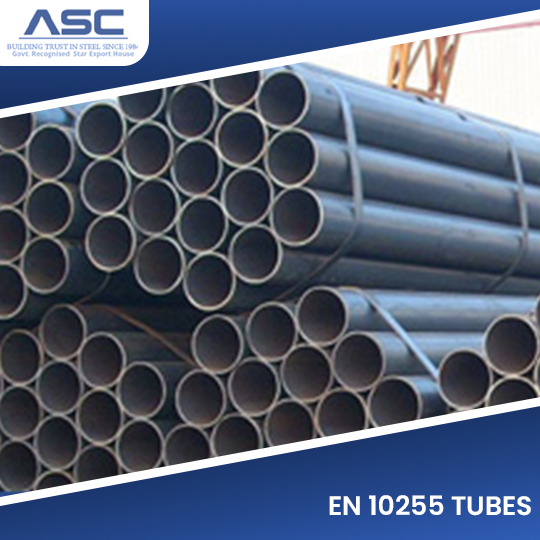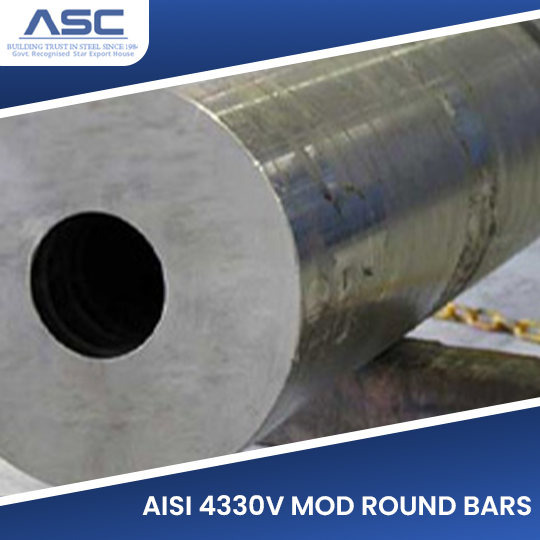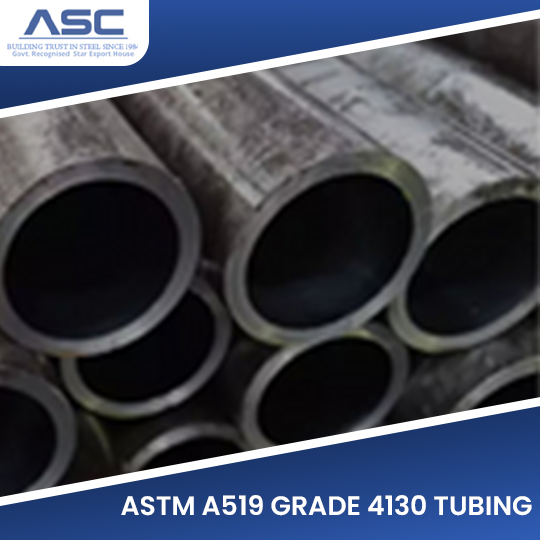Alloy Steel Products in India, Alloy Steel Manufacturer, Alloy Steel Suppliers, Alloy Steel Exporter
Amardeep Steel Centre is an Indian based alloy steel supplier and manufacturer with a full assortment of alloy steel products. Being a reputable player in the business, we offer high-quality materials that meet all strict international standards. We have a wide variety of inventory and state of the art manufacturing processes to ensure that we are able to meet the needs of many industries, including our construction and automotive needs, as well as the oil and gas industries. Our mission is to deliver the best products in alloy steel in India at competitive prices and with quality service.
What is Alloy steel?
The alloy steel is a form of steel, which consists of a mixture of iron and other materials like carbon, manganese, nickel, chromium, molybdenum, vanadium, etc. The incorporation of these elements into the iron base gives superior mechanical properties and enhanced strength, hardness and corrosion and wear resistance compared to plain carbon steel.
The alloy steel has different properties that are set by the particular combination of the elements used in an alloy steel that make it appropriate in different applications. Indicatively, high-strength low-alloy (HSLA) steel is commonly used in construction, whereas stainless steel is commonly used in the food and beverage industry due to its corrosion resistance.
The application of alloy steel is commonly used in various industries, such as construction, automotive, aerospace and energy, where the enhanced properties of the alloy steel offer a great benefit over the conventional carbon steel. Through adjustment of alloy steel composition, manufacturers are able to come up with a material which is specifically suited to a certain application, giving the material the best performance and reliability.
Alloy Steel Products List
Types of Alloy Steel
Alloy steel is a type of steel that is alloyed with a variety of elements, such as manganese, chromium, nickel, tungsten, vanadium, and silicon, to improve its properties. Depending on the alloying elements and their proportions, alloy steel can be classified into different types.
- Low-Alloy Steel: Contains less than 5% of alloying elements. These steels are used for their enhanced strength and toughness in applications like pipes, fittings, and structural components.
- High-Alloy Steel: Contains more than 5% of alloying elements. This category includes stainless steel and tool steel, which are used for applications requiring high corrosion resistance, heat resistance, or wear resistance.
- Structural Alloy Steel: Engineered for use in construction and heavy machinery, these steels offer a balance of high strength, ductility, and weldability.
- Tool Steel: Known for exceptional hardness, wear resistance, and the ability to hold a sharp edge, tool steels are used to create cutting tools, dies, and molds.
We provide a detailed alloy steel products list covering a wide range of types and forms, ensuring you find the right material for your project. For specific product pricing, please contact us for our alloy steel products price list.
Alloy Steel Specifications
The following table provides a general overview of the common forms of alloy steel products we supply. We adhere to international standards and can provide custom dimensions upon request.
| Product Form | Common Grades | Size Range | Key Standards |
|---|---|---|---|
| Pipes & Tubes | ASTM A335 P11, P22 | 1/2" to 24" (OD) | ASTM, ASME, DIN |
| Plates & Sheets | ASTM A387 Gr. 11, Gr. 22 | 5mm to 150mm (Thickness) | ASTM, JIS, EN |
| Bars & Rods | SAE 4140, 4340 | 10mm to 300mm (Diameter) | ASTM, AISI, DIN |
| Fittings | ASTM A234 WP11, WP22 | 1/2" to 24" (Size) | ASTM, ASME |
| Forgings | F5, F9, F11, F22 | As per customer drawing | ASTM, ASME, API |
| Flanges | ASTM A182 F11, F22 | 1/2" to 24" (Size) | ASTM, ASME, ANSI |
Alloy Steel Chemical Composition
The chemical composition is what gives alloy steel its unique properties. The table below shows the typical chemical composition for some of the most popular grades.
| Grade | Carbon (C) % | Manganese (Mn) % | Chromium (Cr) % | Molybdenum (Mo) % | Silicon (Si) % |
|---|---|---|---|---|---|
| ASTM A335 P11 | 0.05 - 0.15 | 0.30 - 0.60 | 1.00 - 1.50 | 0.44 - 0.65 | 0.50 - 1.00 |
| ASTM A335 P22 | 0.05 - 0.15 | 0.30 - 0.60 | 1.90 - 2.60 | 0.87 - 1.13 | 0.50 - 1.00 |
| SAE 4140 | 0.38 - 0.43 | 0.75 - 1.00 | 0.80 - 1.10 | 0.15 - 0.25 | 0.15 - 0.35 |
| SAE 4340 | 0.38 - 0.43 | 0.60 - 0.80 | 0.70 - 0.90 | 0.20 - 0.30 | 0.15 - 0.35 |
Alloy Steel Grades Chart
Our comprehensive alloy steel grades chart below provides a quick reference for matching grades with their equivalent standards and common applications.
| Grades | ASTM Equivalent | DIN Equivalent | BS Equivalent | Key Characteristics |
|---|---|---|---|---|
| AS 4140 | 4140 | 1.7225 (42CrMo4) | 709M40 | High strength, good toughness, and excellent wear resistance. |
| AS 4340 | 4340 | 1.6582 (34CrNiMo6) | 817M40 | High hardenability and impact strength; great for heavy-duty parts. |
| AS T22 | ASTM A213 T22 | 10CrMo9-10 | 629 | Excellent for high-temperature service with good creep resistance. |
| AS P11 | ASTM A335 P11 | 13CrMo4-5 | 620 | Good weldability and strength at elevated temperatures. |
Applications of Alloy Steel
The unique properties of alloy steel make it indispensable in a wide range of critical industries and applications:
- Oil & Gas: Used for pipes, fittings, flanges, and valves in high-pressure and high-temperature environments.
- Power Generation: Essential for boiler tubes, turbine components, and heat exchangers due to its heat and creep resistance.
- Automotive: Found in crankshafts, gears, axles, and transmission components requiring high strength and fatigue resistance.
- Aerospace: Used for landing gear, engine mounts, and structural components where a high strength-to-weight ratio is crucial.
- Heavy Machinery: Utilized in construction equipment, mining tools, and industrial gears that need to withstand extreme wear and stress.
For more information or to request a quote, please contact us. We are dedicated to providing the best alloy steel products in India to help you succeed in your projects.
Related Products :
Reliable Alloy Steel Suppliers for Every Industry
Looking for top-quality alloy steel plates & sheets, pipes & tubes, and bars? At Amardeep Steel, one of the leading alloy steel suppliers in India, we provide a wide range of premium alloy steel products designed to meet the demanding standards of industries such as construction, oil & gas, power generation, and automotive manufacturing. Our alloy steel products are competitively priced and comply with international quality standards, ensuring durability, strength, and superior performance in every application.
Request a Quote Today and experience why industries across the globe trust Amardeep Steel Centre for reliable Alloy Steel Solutions.
Frequently Asked Questions
1. What is the main difference between carbon steel and alloy steel?
Carbon steel is primarily an alloy of iron and carbon. Alloy steel, on the other hand, contains specific alloying elements like chromium, nickel, and molybdenum. These elements are added to improve properties such as strength, hardness, toughness, and resistance to corrosion and wear, which are not present in standard carbon steel.
2. What are the different types of alloy steel?
Types of alloy steel are generally categorized by the total percentage of alloying elements. Low-alloy steel contains less than 5% of alloying elements, while high-alloy steel contains more than 5%. Specific types include structural alloy steel, tool steel, and heat-resistant alloy steel, each designed for particular applications.
3. How do I choose the right alloy steel for my project?
Choosing the right grade depends on your application's requirements. Consider factors such as required strength, toughness, resistance to temperature, and corrosion. Our experts can help you select the most suitable alloy steel grade based on your specific needs and project specifications.
4. Do you provide test certificates for your products?
Yes, as a trusted alloy steel suppliers, we provide comprehensive test certificates for all our products. These certificates verify the chemical composition and mechanical properties, ensuring our materials meet the required industry standards.
5. What is the minimum order quantity (MOQ)?
Our minimum order quantity varies depending on the product type and grade. We accommodate both large-scale industrial orders and smaller, specialized requirements. Please contact our sales team to discuss your specific needs.
